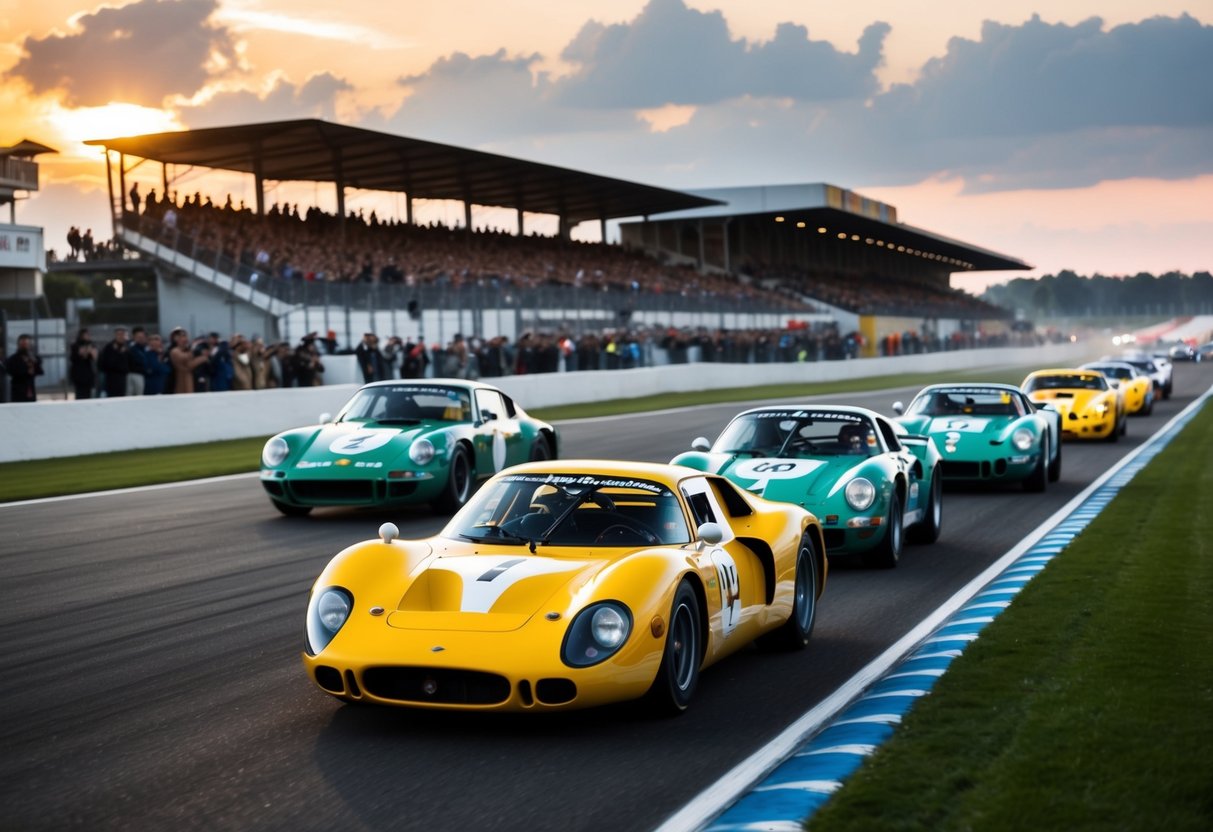
The Transition to Hybrid and Electric Prototypes
In recent years, the focus has shifted towards hybrid and electric engines. Driven by environmental considerations and efficiency goals, these technologies have revolutionized the prototype classes. The Porsche 919 Hybrid and the Audi R18 are notable examples that embraced this transition, integrating electric powertrains with traditional internal combustion engines.
Le Mans’ LMP1 regulations have encouraged the development of these systems, pushing manufacturers to explore energy recovery solutions. This transition has not only reduced emissions but also enhanced the strategic aspect of races, where energy management is crucial. The shift to these powertrains marks a new era, casting a glimpse into the future of sustainable motorsport innovation.
Circuit de la Sarthe: The Heart of the Race
Circuit de la Sarthe is a defining element of the 24 Hours of Le Mans, featuring significant changes and a rich legacy over the years. Its evolution from a perilous track to a safe modern circuit reflects both the race’s history and safety advancements in motorsports.
Layout Changes and Safety Improvements Over Time
Since its inception, Circuit de la Sarthe has undergone numerous modifications that have shaped its legendary status in motorsport. Initially, the layout featured long straights and minimal safety features, which made it both thrilling and dangerous. Over time, sections like the Mulsanne Straight were altered to include chicanes aimed at reducing top speeds.
These changes were essential for participant safety. Enhancements brought in advanced barriers and runoff areas, facilitating better protection for drivers. Lighting improvements also transformed night racing, offering clearer visibility. Each alteration has balanced maintaining the circuit’s classic allure with modern safety needs, ensuring it remains a challenging test of endurance and skill.
The Centenary of the Circuit and Its Legacy
2023 marked the centenary of the Circuit de la Sarthe, a milestone celebrating its influence on automotive engineering and sportsmanship. For a century, it has been central to one of racing’s most prestigious events, the 24 Hours of Le Mans, driving innovation and showcasing the resilience of competitors and manufacturers alike.
This centenary reflects the circuit’s ability to adapt and thrive amidst changing technological landscapes. It has been a proving ground for countless innovations, from aerodynamic advancements to hybrid technology. As a beloved icon in motorsports, the circuit endures as a testament to its continuing legacy and the spirit of endurance racing. It stands not only as a historical landmark but also as a beacon for the future of racing.
Impact on Consumer Sports Cars and Road Cars
Legendary Le Mans racers have significantly influenced consumer sports cars and road cars by introducing advanced technologies and design philosophies. Manufacturers have used their racing successes as platforms to showcase innovation and boost their brand image.
Le Mans to Road: Transferring Technology and Design
Racing at Le Mans has often served as a testbed for groundbreaking technologies that eventually make their way into consumer sports cars. Features such as aerodynamic enhancements, lightweight materials, and advanced braking systems often debut in these endurance races. For instance, McLaren has consistently applied lessons from their Le Mans experience to refine their road car lineup, enhancing performance and driving dynamics.
Iconic cars like the Ferrari 250 LM, which carried the essence of racing design to the streets, showcased the bridge between race and consumer markets. Similarly, the Jaguar D-Type’s innovations in aerodynamics contributed to both its racing triumphs and the design of future Jaguar road cars. The ability to incorporate racing-derived technology into consumer vehicles remains a crucial aspect of automotive development.
Racing Prowess as a Showcase for Manufacturers
Success at Le Mans has historically bolstered the prestige of automotive manufacturers, directly impacting their consumer vehicle offerings. When a brand like Ferrari or Jaguar triumphs in such a demanding race, it sends a powerful message about their engineering prowess. This prestige carries over to their consumer models, where buyers associate the same high standards of performance and quality.
Attention from collectors and enthusiasts alike, especially during auctions, often spikes when a manufacturer achieves success at Le Mans. Classic models derived from racing victories, like the Jaguar D-Type and Ferrari 250 LM, frequently fetch high prices, indicating the strong connection between racing achievements and consumer demand. Thus, Le Mans serves not only as a proving ground for technology but also as a crucial platform for automobile marketing.



